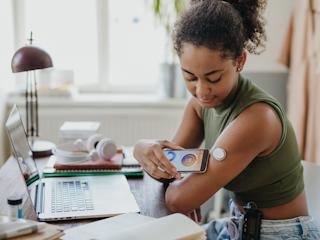Over the years mobile communications and the use of smartphones have become main attractions for pharma business. In 2018 there were 325 000 mHealth apps available - representing a 47% increase compared to 2017. As a trusted partner for several pharmaceutical companies we set out to examine the massive market of mHealth offerings - to learn from their pitfalls and successes, and use these learnings to help the industry provide stronger mHealth initiatives/PSP’s (patient support programs).
For this blogpost, we will supply some of our key findings. If you’re interested in all findings and recommendations, you can download the full report.
How and who we have reviewed
In our full report, you can find all the details on the study-design; what we did and how we did it. But in short, our specialists put the most popular solutions under a microscope, to see which bits and pieces of current mHealth initiatives, provide the best patient engagement and delivers the best outcomes – for the patient and thus also the company.
Our findings
While our final report is too extensive for a blogpost, we want to share our key findings, to enable pharmaceutical companies to create a better framework for digital services that better serves both the company and the patient. So below, you’ll find a summary of some our findings:
-
Outcomes did not match effort
The most critical finding from our review was the outcome did not match the effort which users put-in. Of all the initiatives we reviewed, almost 80% of the initiatives required high effort however only 17% of these initiatives could offer tangible outcomes to the patients. This is highly critical and therefore it is important to better the services. - False Value Proposition
62% of the mHealth initiatives had an effective or strong value proposition. Sadly, we found that only 23% of the mHealth initiatives delivered the promised outcome to their patients. - Rich media is severely underestimated
Of all mHealth initiatives reviewed, only 15% used rich media. Additionally, two thirds of the services had long or semi-long texts as part of the core content which required a lot of effort to absorb. - Personalization is on the radar
Most of the initiatives offered some type of personalization but 40% of the services failed to provide a tailored experience, based on the user’s interests and behaviour. - Mobile device consideration
Almost all initiatives considered device in terms of design. However, only 35-40% really utilized the potential of built-in features. 75% did not provide connected experiences such as integrating with device services or other devices which could have added value in terms of patient empowerment and experience.
So what do we recommend for a successful mHealth initiative?
Based on our study, we believe there are several areas for improvement across the board. In our full report, you can find recommendations related to each finding, but in this blogpost, we would like to provide one general recommendation: focus on the user!
As our recommendation is for all other industries, we believe that any mHealth initiative/PSP needs to be patient-centric in order to succeed. It needs to map the journey and understand the patients’ needs on every step of the journey.
As our recommendation is for all other industries, we believe that any mHealth initiative/PSP needs to be patient-centric in order to succeed
Likewise, it’s necessary to be much more critical about what you expect from the patients in turn for what. The value proposition needs to be realistic.
By this, we by no means argue that companies need to promise less, they simply need to better understand the obligation and opportunities they have, to support the patients. Providing rich media, making use of gamification and providing the right support system will go a long way.
This doesn’t just better the mHealth initiative, but enables the pharmaceutical companies to be consistent throughout their services and touchpoints. In turn this will improve the effectiveness of the healthcare offered, improve the experience and drive behavioural changes- ultimately providing better patient outcomes. Everybody wins.







